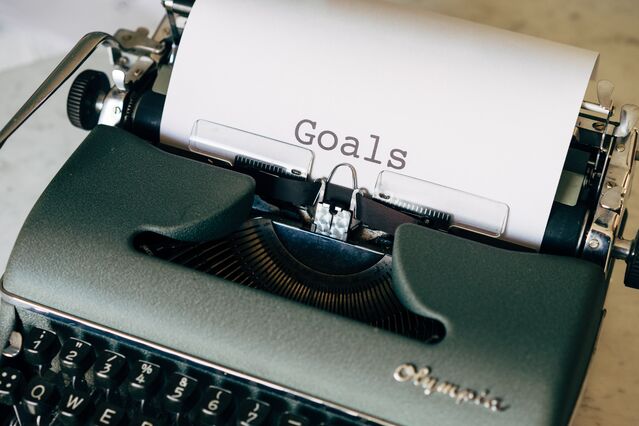Media
How to Have a Healthier Relationship With Achievement
Three steps to recalibrate your expectations.
Posted November 10, 2020 Reviewed by Matt Huston

We worship at the altar of achievement.
If you doubt this, consider how we treat teenage students. They are experiencing immense pressure to excel. Parents push for academic excellence and coaches treat them like professional athletes while they are under pressure from peers to fit in. For some, free time is nonexistent. They devote evenings and weekends to extracurricular activities as they build their resumes for admission into college.
Studies show that 3 in 10 teenagers have some problem with perfectionism. Research by the Robert Wood Johnson Foundation noted the top environmental forces reported to be disrupting adolescent wellness were poverty, trauma, discrimination, social media and the pressure to excel. This trend only continues in adulthood. Researchers have reported evidence that perfectionism is rising among college students. When we finally complete our studies, we expect to earn a healthy income, excel professionally, raise perfect children, have a beautiful house, keep a full social schedule and be pillars of our communities.
The rise in perfectionism comes at a cost. Perfectionism is linked to depression, anxiety and other mental health problems. It should come as no surprise that anxiety is on the rise. A 2018 poll from the American Psychiatric Association showed almost 40% of adult Americans were more anxious than the previous year.
Why are we risking our mental health and relationships for the sake of meeting lofty standards?
The answer can be found in our tendency to engage in social comparisons. Social comparison theory suggests that we determine our self-worth based on how we stack up against others.
The problem is that social media has hijacked our ability to engage in social comparisons. We no longer use a fair measuring stick.
When I moved to the United States from Greece during my sophomore year of high school, I stood out. I was the foreign student with a thick accent. Needless to say, I had very few friends. I could not help but feel inadequate every time I was not invited to social events or school dances.
However, there was one saving grace during this difficult time in my life. I attended high school before the advent of social media. When I was at home, there were no smartphones or social media to bombard me with images and videos from school dances showing how much fun I was missing.
The proliferation of social media has eliminated such boundaries. With the push of a button, you can be flooded with images of how perfect everyone’s life is. You can find out about their latest work promotion or academic publication. You can see how much fun they had on their latest vacation. They are projecting wealth, success and happiness through their social media posts.
Such presentations are a façade as people tend to display their achievements rather than their failures. However, this is easy to forget as you aimlessly scroll through social media. As a result, you fall into the trap of comparing your authentic life to someone’s idealized presentation of their life. This is a lopsided comparison and you will lose every single time.
Recognize that lopsided comparisons are constant on social media. As you scroll through social media, you are not only comparing your life to another life. You are comparing your life to an endless stream of lives that are glamorized as they appear on your screen. Think about the barrage of unfair social comparisons that you are exposed to, consciously or subconsciously, every time you sign into social media.
Such comparisons trigger feelings of anxiety, envy and shame. To compensate, there seems to be no other option but join the race and strive to achieve more. Failing to keep up means only one thing – You Are Not Good Enough!
Our society is filled with achievement-oriented individuals who prioritize achievement over anything else. The prototypical High-Achiever is easy to identify. They miss family dinners and their children’s extracurricular activities as they stay late for work. They may be glued to their work email on the weekends and miss precious time with loved ones. They may forgo exercise or sleep for the sake of keeping up with work.
Sometimes High-Achievers are more subtle. They may be the parent who, while working from home and homeschooling their children due to the pandemic, also expects themselves to keep a tidy house, have perfectly folded laundry, take their children to soccer practice and prepare dinner every evening.
We have raised our bar of expectations to unrealistic and unsustainable levels. However, there are ways to recalibrate these expectations for the sake of our wellbeing and relationships.
The first step is admitting that we are spread too thin. To do this, imagine a person you love has set their bar of expectations at the same level as you. They are struggling to juggle multiple roles and responsibilities. Imagine they told you that they felt stressed and overwhelmed. What would you tell them? You would give them permission to back off some of their responsibilities. Maybe you would advise them to order takeout instead of preparing dinner. Perhaps you would tell them that it is OK to have a messy house while they try to keep up with competing work and family responsibilities.
If you offer such advice, then why not live by it? In other words, why the double standard? Give yourself the same grace that you give your loved ones.
An additional strategy is to substitute social comparisons with personal comparisons that focus on your individual progress. Recognize that someone else’s success or failure has no bearing on you. We have different goals and definitions of success. Focus instead on where you have been, where you are and where you are heading on your personal journey.
Finally, maintain healthy boundaries with social media. If you decide to aimlessly scroll through social media, you are making yourself susceptible to countless social comparisons that can negatively impact you.
Be intentional with how you use social media. For example, I only use Facebook to connect with family and friends. This platform has made it easier to send birthday and holiday wishes to loved ones, especially family in Greece.
On the other hand, I use Twitter to express my thoughts on topics of interest such as mental health and writing. I also use this platform to connect with fellow writers and medical professionals.
A focus on achievement is not necessarily a bad thing. It can bring great fulfillment to life. The problem occurs when we lose perspective and sacrifice our well-being in pursuit of achievement.




